Trade Union Organizing in Tunisia: LiA Reflection Week 4 (July 14-19)
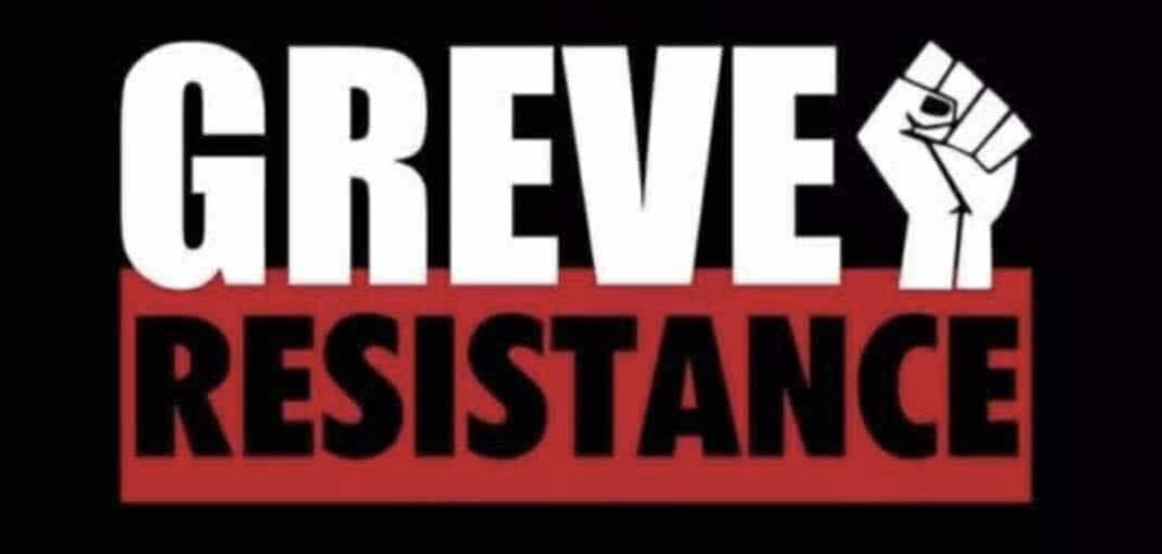
I cannot believe how quickly the time is passing, that I have already completed my fourth week with the UGTT in Tunisia. As I started work on Monday, one of the first things I saw on the Facebook account of the union was their official nomination of UN Special Rapporteur Francesca Albanese for the Nobel Prize. The UGTT, alongside several other non-governmental organizations, was a recipient of the Nobel Peace Prize in 2015 for their work in the democratic peace-making process for Tunisia after the Revolution of 2011, and they have used this recognition to continue fighting for peace all over the world—especially in Palestine. I cannot express in words how meaningful it is to me to see the moral clarity of the UGTT in nominating Albanese for the Nobel Peace Prize for her ceaseless work in exposing the complicity of multinational companies in funding the genocide in Gaza.
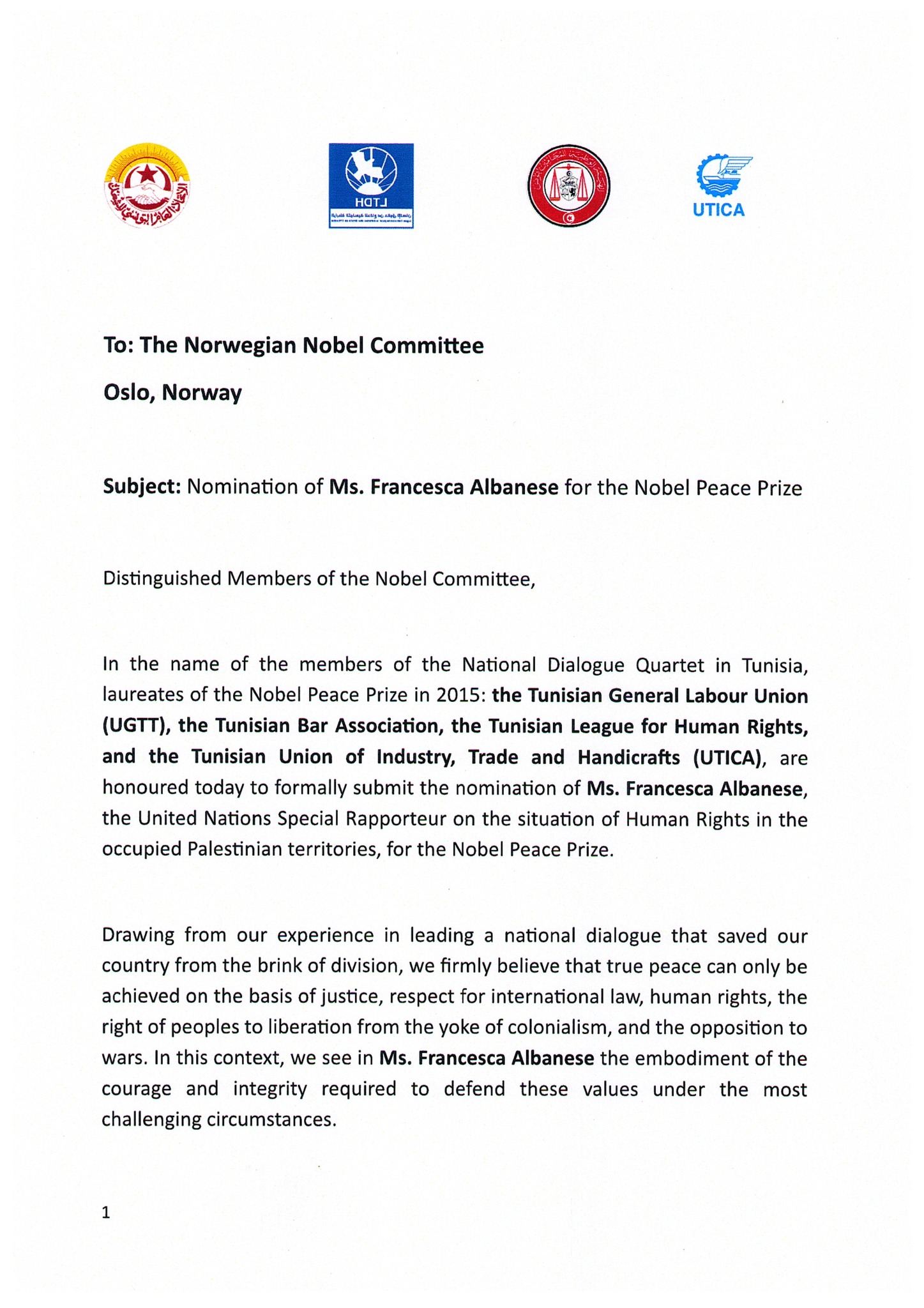
I am currently working on a project to map the international and regional affiliations of the UGTT with other labor organizations, including the UNI Global Trade Union, the Arab Trade Union Confederation, the International Labor Organization, and myriad other labor advocacy organizations fighting for working people all over the world. I am continually impressed by the emphasis and priority that the UGTT places on building global worker solidarity; it is an integral part of their mission, and has been since the founding of the union in 1946. That is to say, the union deeply recognizes the fact that the empowerment and liberation of Tunisian workers from oppressive systems of wage exploitation cannot be achieved without the empowerment and liberation of workers all over the world. This is something that I have identified as a key weakness in the United States labor movement, and a lesson that American unions must learn from the example of international trade unions, especially in the Global South.
For instance, I had several conversations with my supervisor this week as I was working on the mapping project about trade union partners in Spain and Catalonia. Barcelona and Madrid have served as key supporters in the work of the UGTT; they host conferences locally and visit Tunisia often, and there are many joint projects and cooperative efforts between the two countries to establish global solidarities. In thinking not only about international liberation for the working class, but also global efforts to combat climate change, Spain has been a leader in the West in recognizing that efforts to mitigate the climate crisis must have an understanding of imperialism as the highest form of capitalism.
Barcelona’s grassroots Commitment to Climate Change project in 2015 tackled issues of overtourism, sustainable cities, but also and perhaps most importantly, how the climate crisis uniquely impacts countries in the Global South because of resource expropriation. I have been learning a lot about Barcelona's Action Plan in my personal reading, so it has been wonderful to see that many of their trade unions also prioritize partnership with countries like Tunisia as a way of recognizing colonial legacies and charting a route forward that acknowledges the ongoing legacy of neo-imperialism in international multinational companies.
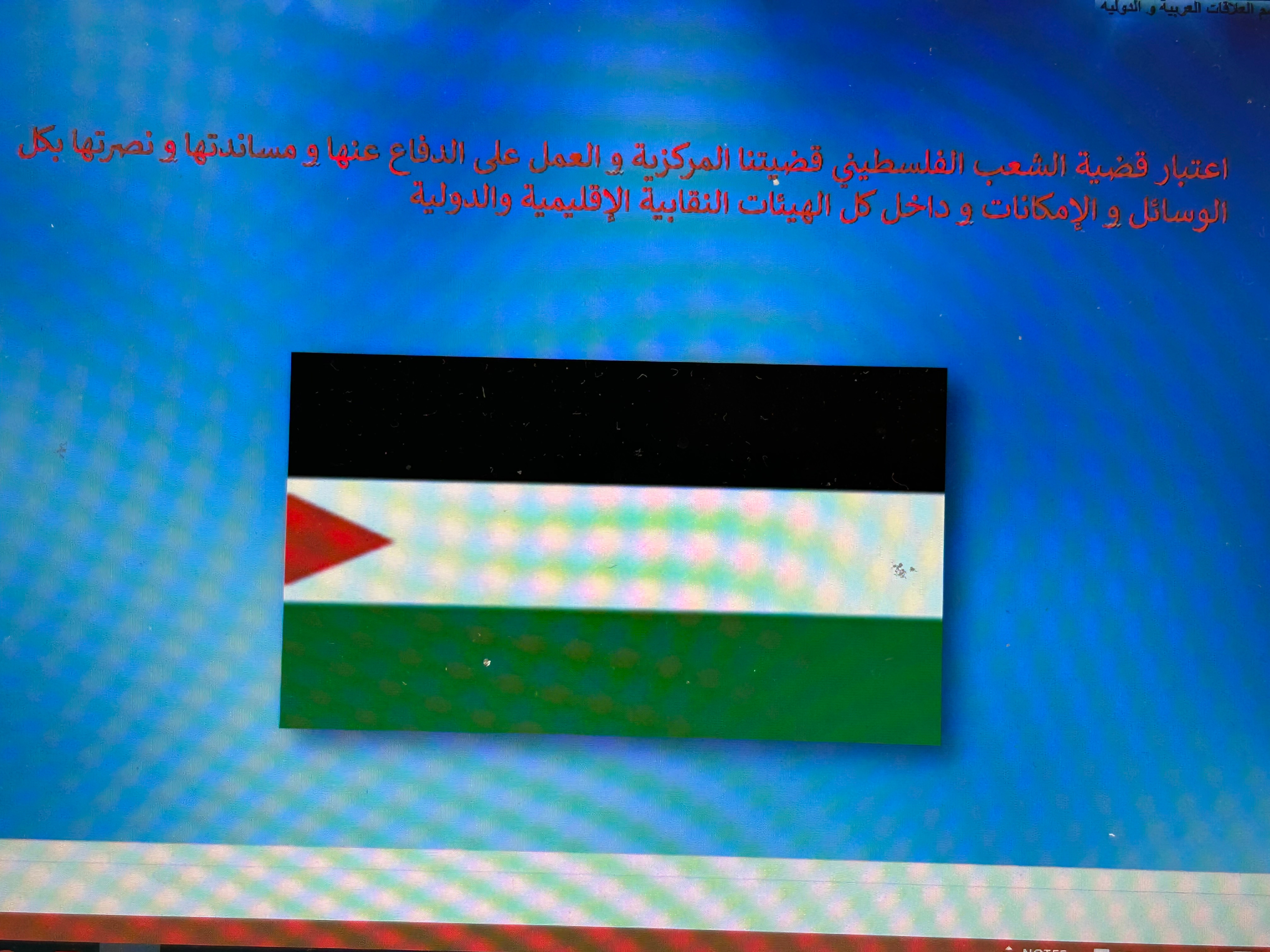
I had the opportunity to talk to several workers this week for various American, French, and British enterprises, and I have never been more certain that many foreign companies operating in Tunisia are actively perpetuating the horrors of colonialism. Tunisia has an excellent education system that is extremely financially accessible, and as a direct result of their prioritization of education, younger generations have high levels of education and proficiency in multiple languages. But the rate of unemployment is very high due to a lack of job opportunities, and many international companies have taken advantage of this discrepancy between education levels and employment levels to create working conditions that are highly, highly exploitative.
Many technological companies promising to offer a seamless future of chatbots and virtual support assistants have created offices in Tunisia and put out calls for workers, including call centers and content moderating sites. However, many of these companies offer short-term employment contracts without access to benefits and without long-term stability, and the conditions of labor are often extremely precarious and mentally draining. Additionally, many of these companies have refused to recognize the fundamental rights of their employees to unionize.
This violation of rights was demonstrated very clearly this week, as an international company working in Tunisia called SPB Blackfin fired a union member Anaf Ayadi more than a month ago. In response to this firing, and also in response to SPB refusing to show up to a meeting with the Tunisian government as required by Tunisian law, the employees of the SPB—affiliated with the General Federation of Information Technology and Services of the UGTT—called for a strike on July 15, 2025. After the strike was called, SPB prevented employee Ehsan Hafoufi from working in a gross violation of both national and international law.
This is not the first time that an international technology company has refused to respect Tunisian labor laws and the rights of workers to unionize. French multinational company Armatis Group prevented employees from accessing the building after they announced that they would be unionizing with the UGTT. Union leaders at the UGTT have rightfully recognized this as a form of recolonization of Tunisia. Though the operation of foreign multinationals begins as a convincing investment and offers the promise of job opportunities for Tunisians, the utter disrespect for regional and global trade union rights on the part of these enormous technological firms, notably SPB Blackfin and Armatis Group, is nothing but a pernicious form of neo-imperialism.
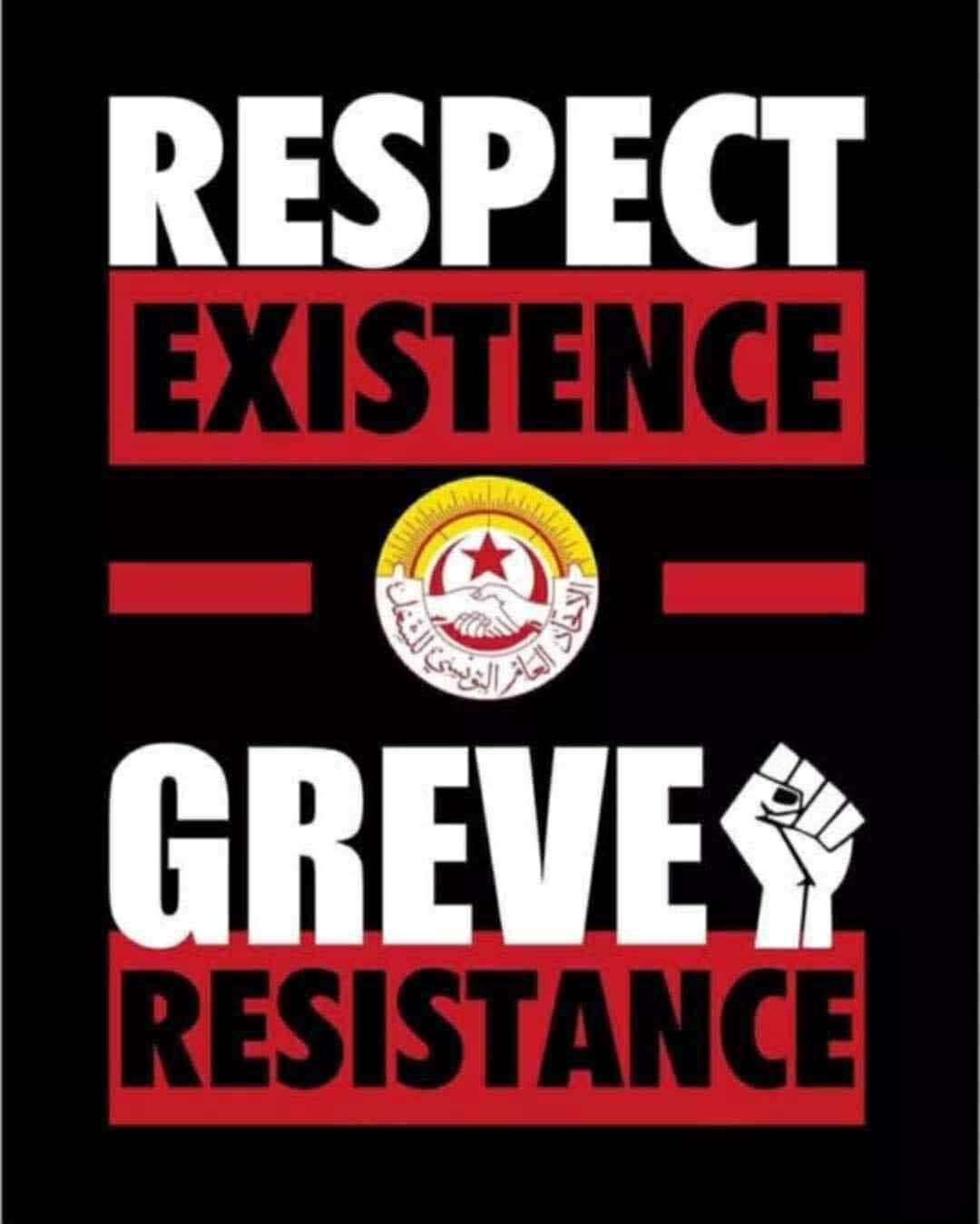
The last thing that I’ll say about my week is that on Friday and Saturday, I had the chance to participate in an incredible conference on Occupational Safety and Work Hazards, with a focus on the agricultural industry. There were two delegations from Morocco and the Netherlands who participated in the conference (as noted earlier, the international emphasis touches everything the union does), and thanks to the incredible work of the translators of the conference, I was able to listen to the words of the speakers in real time.
The two-day conference was incredibly informative, but most of all, it was heartbreaking. A huge portion of the discussion centered around the risks that agricultural workers—some of the poorest workers in the world—endure when spraying pesticides on crops. We watched several videos of farmworkers being blown up because of chemical reactions that occurred when mixing pesticides. We listened to stories of flower pickers in Holland who picked flowers when they were fifteen and sixteen years of age, and who now, in their 50s and 60s, are developing Parkinson’s Disease at horrifying rates because of pesticides they were exposed to forty years prior.
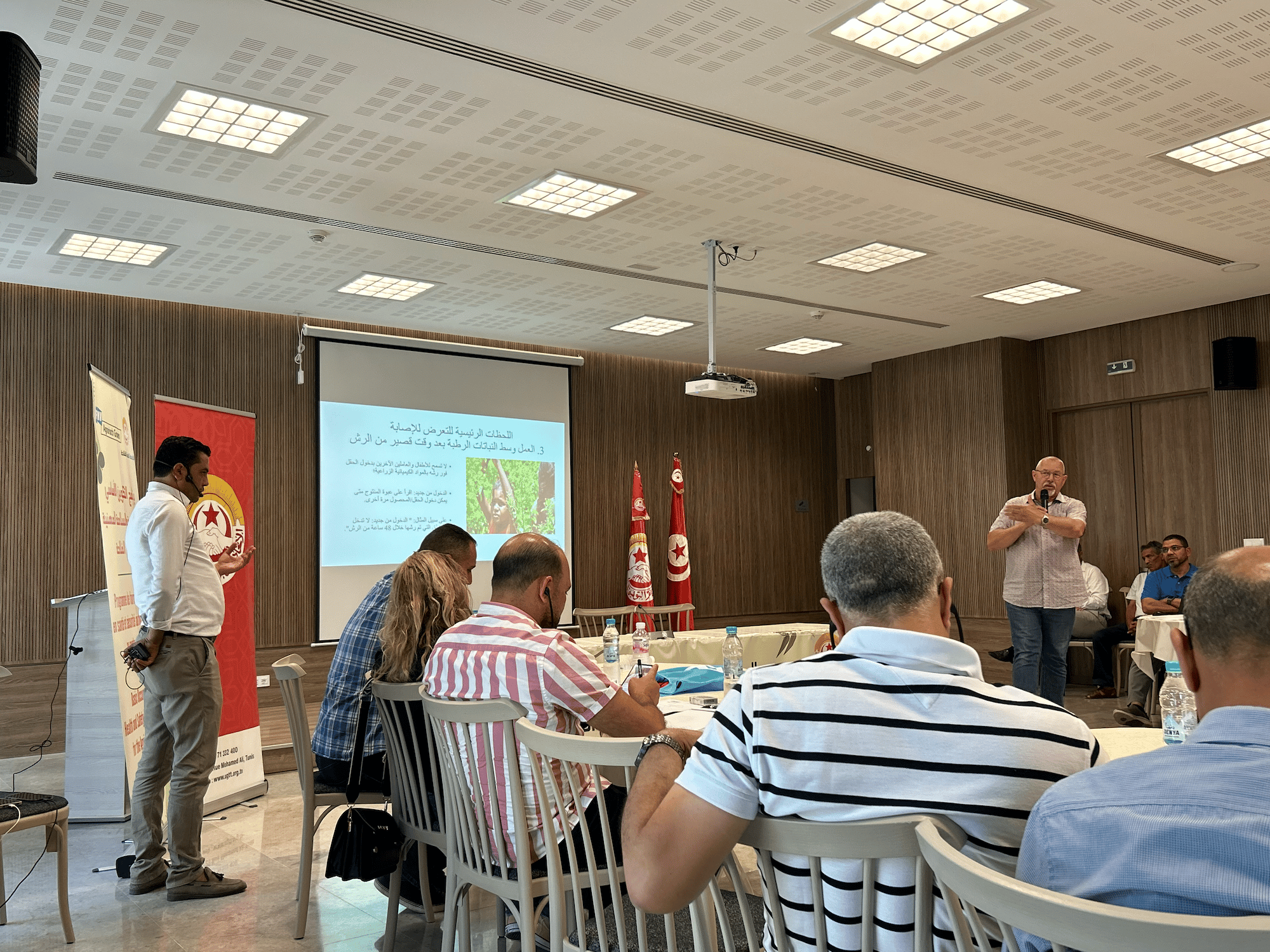
After the Dutch delegation gave their presentation on ways to mitigate risk for agricultural workers who are spraying pesticides—including using clean PPE, advanced masks, not exposing any skin while spraying, etc.—many Tunisian union leaders asked about ways of assigning responsibility to huge agricultural companies and pesticide companies based in the Global North, but which sell pesticides to and extract crops from Africa and Asia. In order to support out-of-season fruits and vegetables consumption in the Global North, pesticides must be used far and wide in the Global South, killing workers and destroying the local environment.
It’s all well and good for the Dutch union leaders to promote gloves and masks for workers, but what happens when a poor farmworker in India takes on a pesticide spraying job for a duration of ten days and dies on the seventh, a real story that was shared with us on Saturday? Many of the men and women in the room, agricultural union leaders in Tunisia, were intimately aware of the life-threatening impacts of pesticides. As I sat there, trying not to cry at the videos being shown, I could not help but think that this form of agricultural labor with pesticides is chemical warfare on the working class. There is so much violence embedded in everything, even the smallest cucumber or the littlest tomato, and it is being funded and expanded by enormous international companies and consumer behaviors in the Global North.
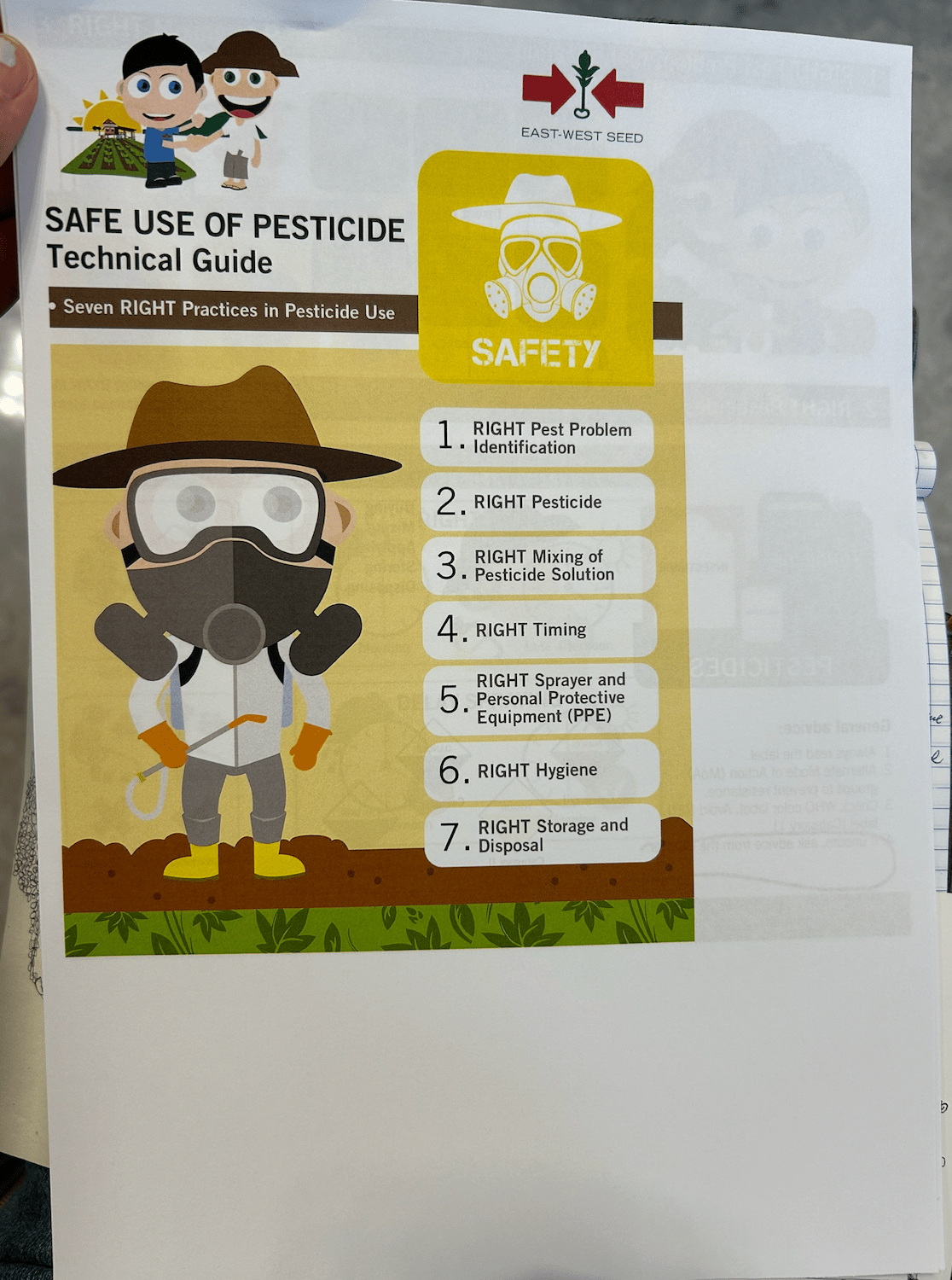





Please sign in
If you are a registered user on Laidlaw Scholars Network, please sign in
It’s been both inspiring and heartbreaking to read your blogs, Fiona. Inspiring in how you’ve embraced this unique experience and shared your reflections with such honesty. But also heartbreaking—especially the last part—to learn about the exploitative and inhumane treatment of agricultural workers, and the impact of high unemployment on young people’s sense of hope. I’ve recently been reading about Syrian workers in oil companies being exposed to dangerous radiation without even knowing it. It’s outrageous how easily large corporations profit from the exploitation of vulnerable workers. Thank you for shedding light on these issues and I hope to see more models like UGTT.